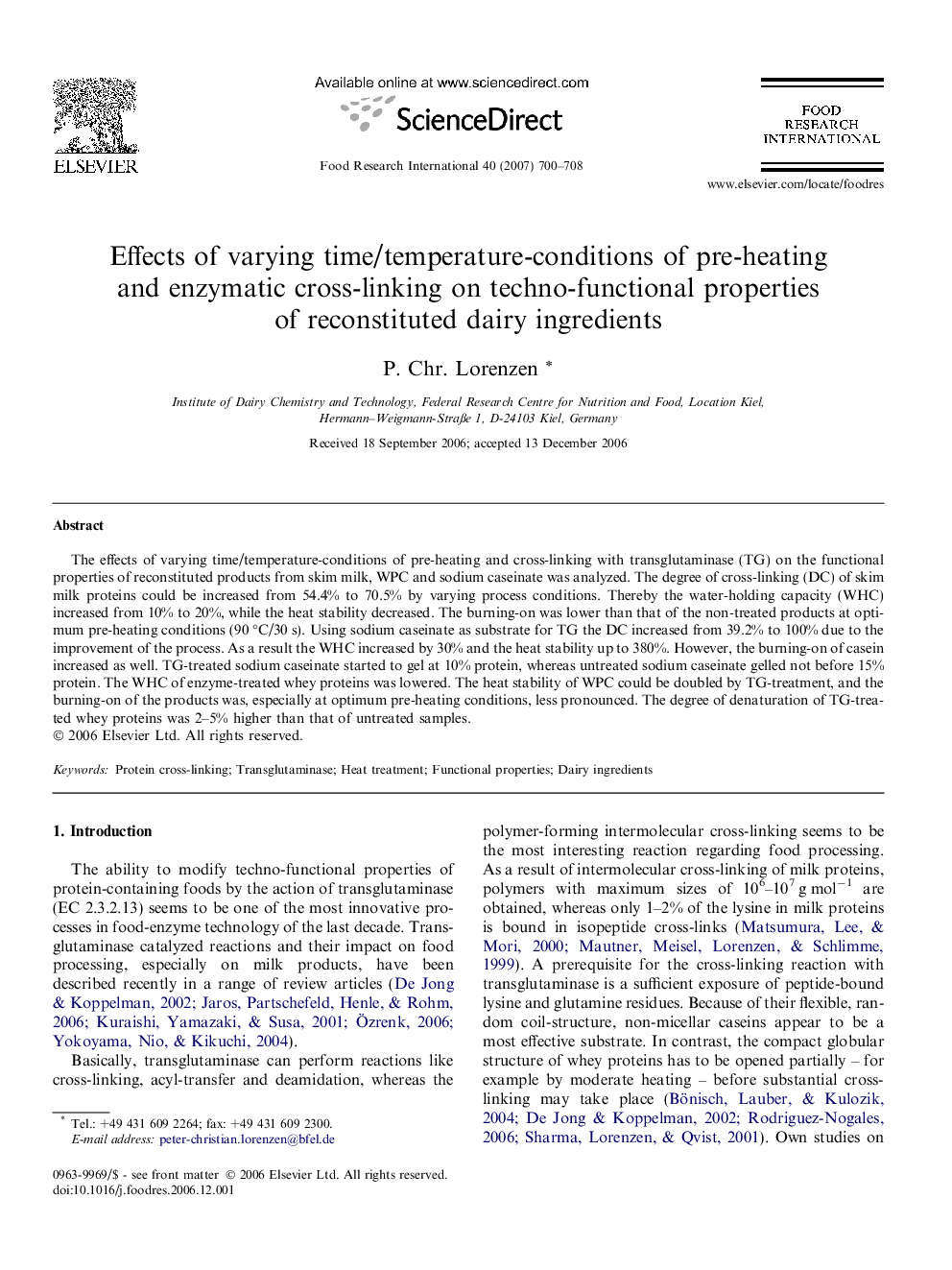| Article ID | Journal | Published Year | Pages | File Type |
|---|---|---|---|---|
| 4562911 | Food Research International | 2007 | 9 Pages |
Abstract
The effects of varying time/temperature-conditions of pre-heating and cross-linking with transglutaminase (TG) on the functional properties of reconstituted products from skim milk, WPC and sodium caseinate was analyzed. The degree of cross-linking (DC) of skim milk proteins could be increased from 54.4% to 70.5% by varying process conditions. Thereby the water-holding capacity (WHC) increased from 10% to 20%, while the heat stability decreased. The burning-on was lower than that of the non-treated products at optimum pre-heating conditions (90 °C/30 s). Using sodium caseinate as substrate for TG the DC increased from 39.2% to 100% due to the improvement of the process. As a result the WHC increased by 30% and the heat stability up to 380%. However, the burning-on of casein increased as well. TG-treated sodium caseinate started to gel at 10% protein, whereas untreated sodium caseinate gelled not before 15% protein. The WHC of enzyme-treated whey proteins was lowered. The heat stability of WPC could be doubled by TG-treatment, and the burning-on of the products was, especially at optimum pre-heating conditions, less pronounced. The degree of denaturation of TG-treated whey proteins was 2-5% higher than that of untreated samples.
Related Topics
Life Sciences
Agricultural and Biological Sciences
Food Science
Authors
P. Chr. Lorenzen,
